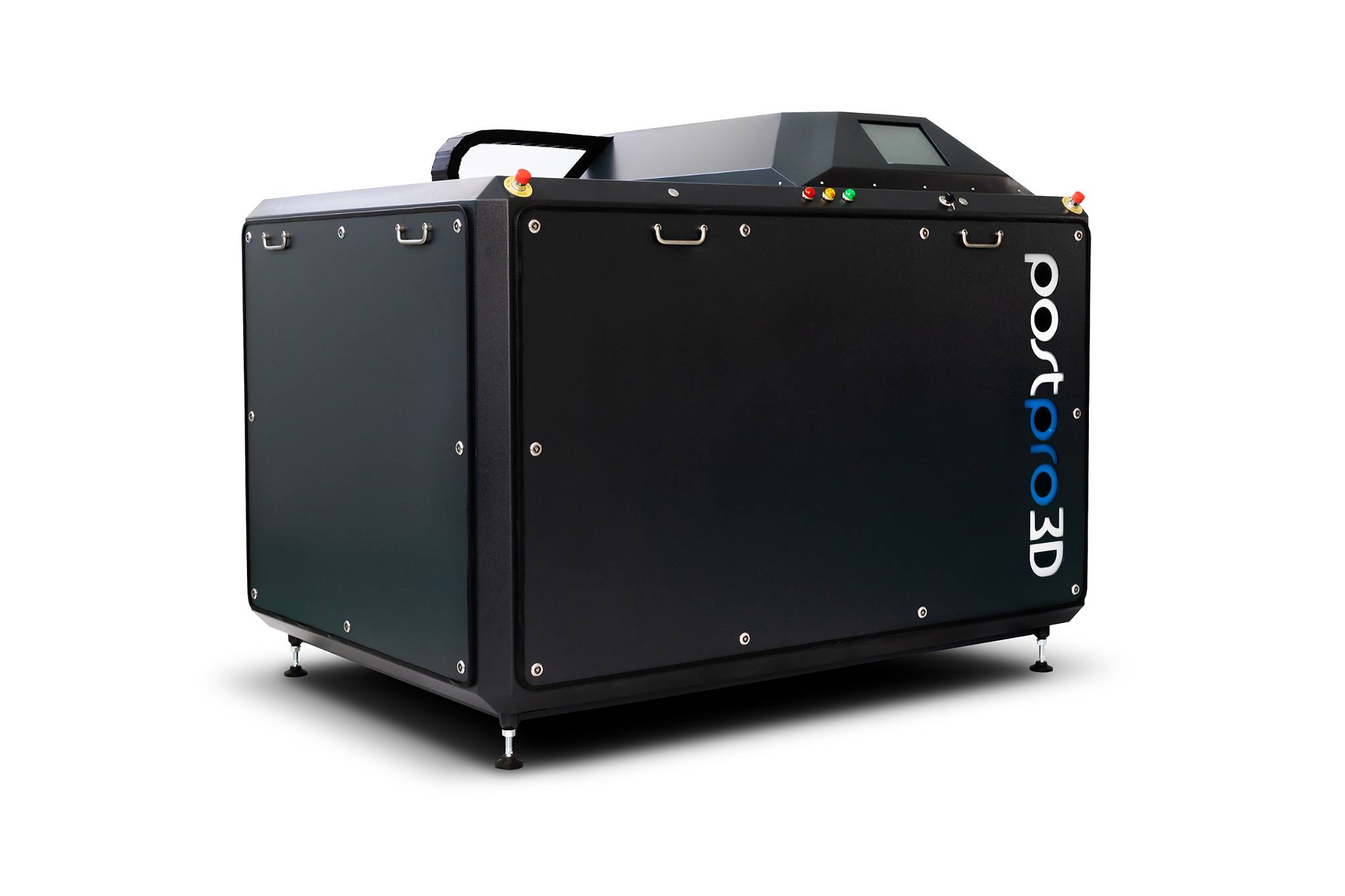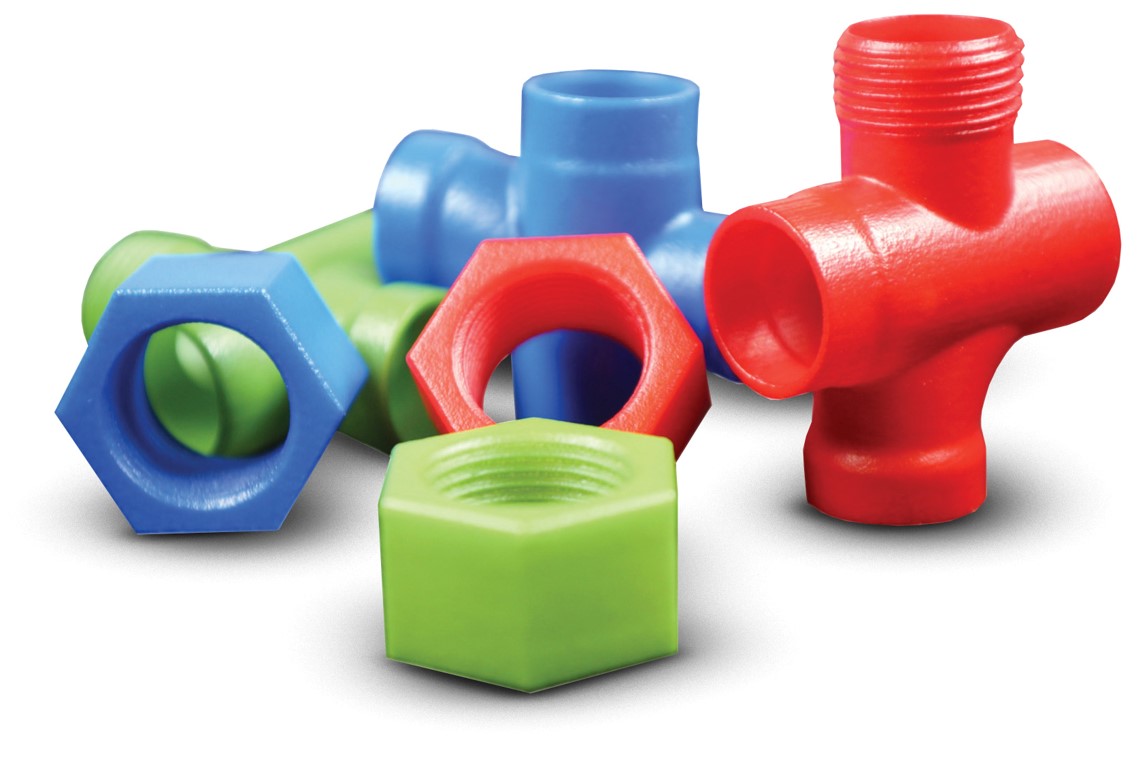UK-based post-processing specialist Additive Manufacturing Technologies (AMT) has partnered with Japanese electronics manufacturer Mitsubishi Electric to develop a fully automated post-processing machine for 3D printed plastic parts that significantly boosts productivity.
Reportedly the first machine of its kind to be approved by safety and consulting firm Underwriters Laboratories (UL), the set-up comprises AMT’s PostPro3D chemical vapor smoothing system and Mitsubishi’s articulated arm robots offered as a system option. According to the partners, this combination significantly increases the system’s productivity from a few parts finished per hour to hundreds.
“Up to now, finishing a 3D printed part has been an entirely manual process, which can account for 30-70 percent of the total manufacturing costs,” said Joseph Crabtree, CEO at AMT. “By using our automated solution, PostPro3D, manufacturers can cut the end price substantially, making 3D printing cost effective for higher-volume production.”

AMT’s PostPro 3D system
Founded in 2017 by Crabtree and based on technology developed at the University of Sheffield, AMT launched its PostPro3D system in 2018. The technology is a patented, fully-automated chemical vapor smoothing process for 3D printed plastic parts that can deliver cost savings to manufacturers by replacing manual post-processing steps.
The process smoothes over layer lines that are present on 3D printed parts by blasting parts suspended in a chamber with a highly-potent solvent to remove porosities and surface imperfections.
Earlier this year AMT closed a £2.5 million funding round which Crabtree stated would help the firm “unlock the full potential” of industrial 3D printing. The announcement came shortly after AMT agreed a partnership with multinational printing firm HP to provide end-to-end post-processing services for its Multi Jet Fusion (MJF) printing technologies.

Automated post-processing
According to AMT, its aim was to develop a machine that meets industry 4.0 criteria, such as cloud connectivity, the ability to send status updates and to automatically order consumables when needed, and provide remote diagnostics. The company first began its partnership with Mitsubishi Electric to speed up automated post-processing back in 2018.
“To realize our concept, we needed an automation partner that could provide the whole range of machine control systems, as well as the actual robotics,” said Crabtree. “This is fundamental to truly integrate our machine into the production line of the future as well as to benefit from a lean, single vendor distribution model.”
The PostPro3D machine developed by AMT and Mitsubishi Electric integrates the latter’s MELSEC iQ-F series compact PLC, HMIs, SCADA, and MELFA articulated arm robots as a system option. The system is also fitted with a Mitsubishi Electric power supply, low voltage switchgear, servo drives and motors which are connected to a MELSEC iQ-F Series FX5UC PLC and operator terminal, enabling the operator to set finishing parameters and monitor the process to ensure efficiency.
During post-processing, 3D printed parts are loaded in and out of the machine either manually or by using an integrated Mitsubishi MELFA RV-F series six-axis robotic arm. Then, the user can select the desired surface roughness and other additional surface qualities of the parts, before the processing data is analyzed and stored in real-time for continuous process monitoring. Parts are typically finished within a cycle time of between 90 and 120 minutes, and are then ready to use.
The machine is accredited to UL and CE standards in order to meet AMT’s intention of delivering its PostPro3D system to the US, European, and Chinese markets. AMT chose Mitsubishi Electric as its automation partner for its “one-stop-shop” automation offerings capable of ensuring component compatibility and facilitating data-sharing.
“We believe PostPro3D will have a significant impact on a number of manufacturing applications, from footwear and medical parts to aerospace and automotive,” said Crabtree. “This would not have been possible without the right automation specialist. We have enjoyed working with Mitsubishi Electric to develop the world’s first fully integrated system for automated post-processing of 3D printed parts.
“Thanks to this partnership, we are able to confidently offer the machine to a global marketplace.”
Subscribe to the 3D Printing Industry newsletter for the latest news in additive manufacturing. You can also stay connected by following us on Twitter and liking us on Facebook.
Looking for a career in additive manufacturing? Visit 3D Printing Jobs for a selection of roles in the industry.
Featured image shows the PostPro3D system. Photo via AMT.


